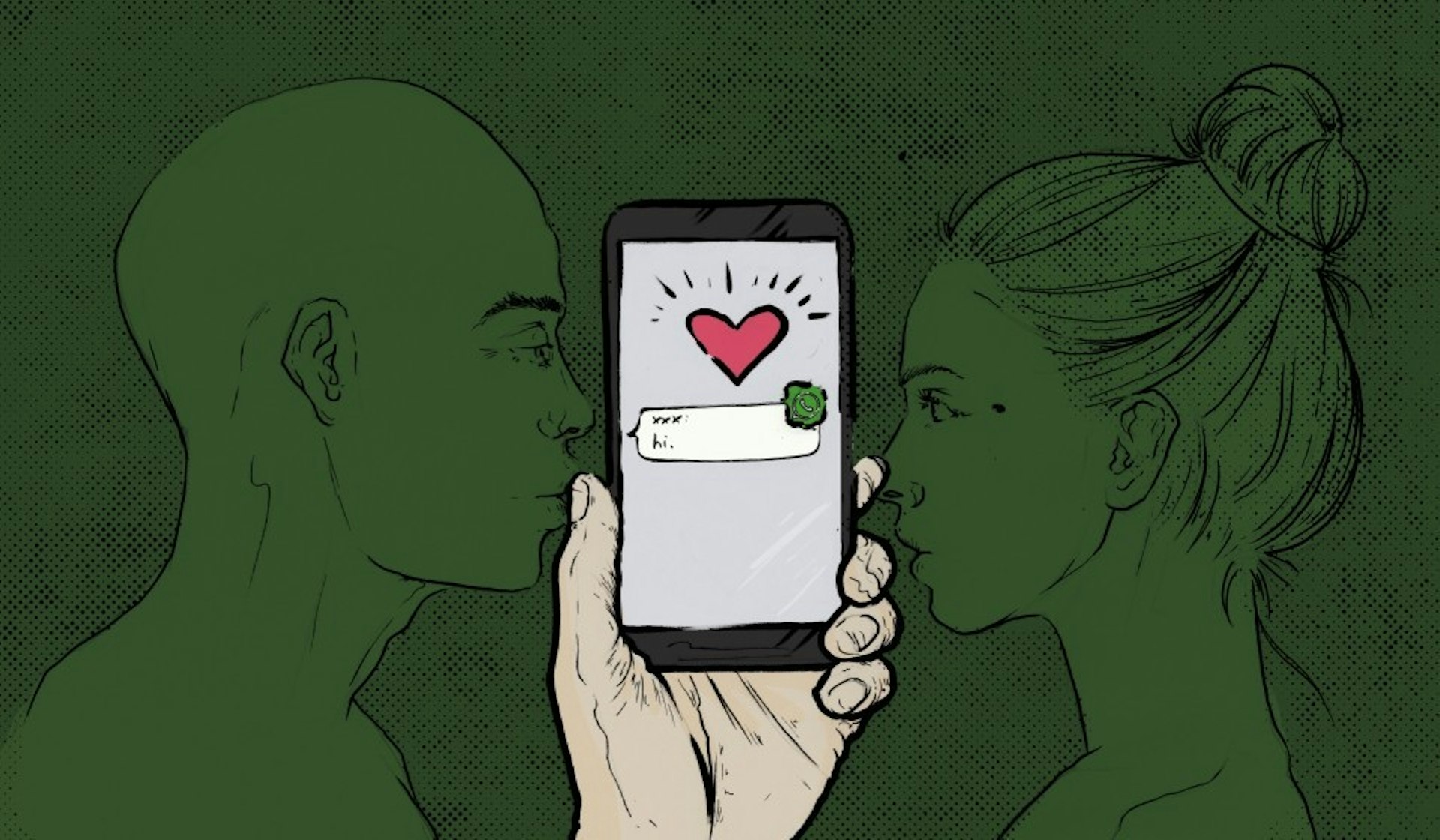
Switch off? In the digital age, we’ll always be reachable
- Text by Emily Reynolds
- Illustrations by Sophie Mo
This week, it happened again: an unexpected text found its way to my phone after three weeks of silence. It got me thinking about availability: how we’re available, where, to who.
Everyone has someone who comes in and out of their life intermittently: that’s not a phenomenon unique to the internet. But, as I’ve discovered, the range and breadth of our online lives make it far easier for someone to pop up again and again, picking you up and putting you down as and when they please – something my friend Hayley described as “a whack-a-mole of emotional distress”.
This is particularly difficult when you’re trying to extricate yourself from a romantic relationship. You archive their chat on WhatsApp: they text you instead. You block their number so they can no longer call: they send you an email. There’s almost always somewhere – some backchannel, some avenue – someone can reach you if they really want to. The ubiquity of last seen and blue ticks and online statuses adds to this perpetual availability: someone’s tangibly, measurably there. You can feel them.
It’s startling what impact this can have on us. What is a text? A text is disposable, a half-thought, the shadow of a memory of a feeling: what harm can it really do? A lot, it turns out. An unexpected text can quickly pierce our emotional unavailability, no matter how hard we’ve worked on it, no matter how much time has passed. It jolts us into a new, uneasy present, one we’ve lived before and were happy to see the back of.
This often comes at exactly the wrong time, too, the person you don’t want to hear from seemingly intuiting that your feelings have changed. “I feel like I’m finally getting over it,” I tell my friends in the pub on Monday night; less than 12 hours later the inevitable message comes, he and I like two tin cans on the end of a suddenly quivering string.
I can’t say it was a huge surprise: because we’re all so easy to reach, we start to expect it, the restless period of waiting and counting and watching our inbox lasting longer and longer before we snap and stop caring. He could reach you by text or by email or by Facebook or by WhatsApp, he could send you an Instagram DM, a tweet. Sometimes he won’t. But sometimes he will.
This in-between impossibility reminds me of a poem by Richard Siken, ‘You are Jeff’: “When he throws the wrench into the air, it will catch the light as it spins towards you,” he writes. “You had expected something else, anything else, but the wrench never reaches you. It hangs in the air like that, spinning in the air like that.” Online, that wrench can spin forever.
We all know that the internet can help us reach almost anyone, whether that’s emotionally or literally: we ourselves can be open to anything from totally consuming mutual intimacy to simple, basic contact, words on a screen that uncomplicatedly communicate nothing but themselves. But when this connection is so intermittent, it can turn into a kind of cruelty: we know someone’s there even when we’re not, and we take advantage of it.
It’s not sustainable. After a while you have to switch off, close the channels. You have to redirect the email to spam, block the number for (your own) good; you have to understand that their silence is a meaningful action in itself. You have to stop putting yourself through it; you have to grit your teeth and make yourself unavailable, close your eyes and wait. Eventually, it has to stop: eventually, you have to let the wrench hit you or fall to the floor.
Follow Emily Reynolds on Twitter.
Enjoyed this article? Like Huck on Facebook or follow us on Twitter.
